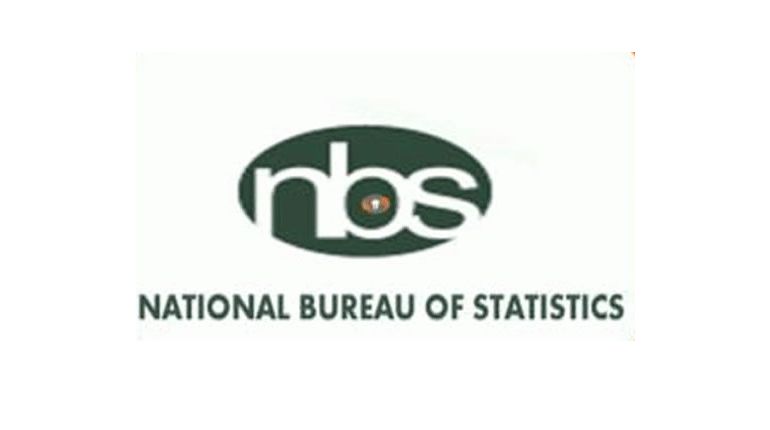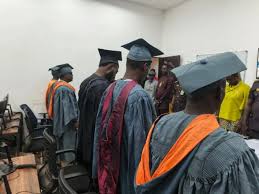
Public officials received N721bn bribe in 2023 – NBS report
According to a recent National Bureau of Statistics estimate, Nigerian public officials accepted bribes of no less than N721 billion in 2023.
According to the research "Corruption in Nigeria: Patterns and Trends," which was issued on Thursday, the N721 billion in bribes paid equates to around 0.35 percent of Nigeria's GDP.
The United Nations Office on Drugs and Crime conducted a survey that served as the basis for the outcome.
The report found that the average monetary bribe increased from N5,754 in 2019 to N8,284 in 2020.
A portion of the study stated, "The average monetary bribe paid was 8,284 Nigerian Naira, according the 2023 survey. Despite the fact that the nominal average cash bribe size has grown (from NGN 5,754) since 2019, this does not account for inflation. The inflation-adjusted average cash bribe in 2023 was 29 per cent smaller than in 2019 in terms of what could be bought with the money.
According to estimates, bribes in cash totaling around NGN 721 billion (US$1.26 billion) were paid to public officials in Nigeria in 2023; this amounts to 0.35 percent of the country's GDP.
After the expense of living, instability, and unemployment, the research placed corruption as the fourth most significant issue facing the nation in 2023.
In comparison to other issues like housing or education, it also stated, "This suggests relatively stable and high levels of concerns about corruption over time."
"Throughout time and in various places, Nigerians' trust in the government's anti-corruption initiatives has been eroding. While in 2019 the majority of people believed that the government was doing a good job of combating corruption, in 2023, the share declined to lessons than a third of all citizens. The downward trend in the citizen’s confidence is observable across the entire country, with all six zones recording reductions of more than 10 percentage points between 2019 and 2023 in terms of the share of citizens who thought the government was effective in fighting corruption.”
According to the research, the percentage of Nigerians who engaged with a public official in 2023 dropped from 63% in 2019.
Notwithstanding this decline, bribery is still pervasive in the country, with an average of 5.1 bribes paid for every bribe payer, or around 87 million bribes. Compared to the expected 117 million bribes in 2019, this is a drop.
Additionally, it was revealed that bribery is more prevalent in rural areas than in urban ones, with an average of 5.8 bribes paid by rural inhabitants compared to 4.5 bribes by urban residents.
Regarding mode of payment, the research stated that in 2023, more than 95% of bribes were made using money transfers or cash.
It stated that while private sector players, such as doctors in private hospitals, climbed from 6% in 2019 to 14% in 2023, public officials were more likely to demand bribes.
The public sector continues to have almost twice as much bribery as the private sector, and public sector contact rates are also twice as high.
Of Nigerians who dealt with governmental officials in 2023, 27% paid a bribe, a marginal decline from 29% in 2019. Bribery was engaged in more than one-third of encounters between civilians and public officials, including situations in which bribes were offered but rejected.
The survey also reveals a rising trend of Nigerians declining to accept bribes. By 2023, seventy percent of those asked to pay a bribe refused at least once, with the highest refusal rates in the North-West zone at 76 per cent. All regions recorded refusal rates above 60 per cent. This indicates that Nigerians are increasingly standing against corruption.
The report claims that Nigeria is becoming a less accepting place for bribes. The proportion of citizens who think that calls for bribes to speed up administrative processes are appropriate fell from 29% in 2019 to 23% in 2023.
In comparison to 2019, fewer individuals reported experiencing unfavourable outcomes as a result of declining bribery requests in 2023. This shows that Nigerians are becoming more empowered to challenge dishonest officials without worrying about the consequences.
Twenty-one percent of those who declined bribes in 2023 said they did so because they had other options. Concerns about norms (42%), as well as financial strains (23%), were important factors in their decision to decline bribes.
Additionally, at least 60% of public sector employees were employed through bribery, nepotism, or both between 2020 and 2023.
According to the survey, six out of ten selected candidates acknowledged utilising bribery, nepotism, or both to increase their chances of getting hired.
Particularly, 27% of these candidates acknowledged utilising bribery alone, 13% acknowledged utilising nepotism exclusively, and 19% acknowledged employing both. However, according to data gathered between November 2020 and October 2023, 40% of the candidates stated that they had obtained their positions without using any of these strategies.
According to the research, the procedure used to choose new public servants is vital in forming the civil service's culture of integrity and guaranteeing that applicants meet the highest standards of competence and merit.
However, the results of the 2023 survey show that the hiring process for the public sector needs to be closely watched, as nearly half (46%) of those who had been hired by the government within the three years prior to the survey acknowledged paying a bribe to make the process easier. This percentage is nearly 1.5 times higher than that of the 2019 survey (31%).
According to data from the 2023 survey, 32% of all successful applicants in the three years prior to the survey benefited from the assistance of friends or relatives, with many of them going so far as to pay a bribe. This indicates that a sizable portion of those hired into the public sector did so in order to obtain their positions. Approximately 60% of Nigerian applicants for public sector jobs were employed through nepotism, bribery, or both in the three years before to the 2023 poll, which is approximately 1.2 times higher than the percentage reported in the 2019 survey.
The study also found that when formal assessments are a part of the hiring process, bribery is significantly less common.
In particular, 51% of applicants did not receive a formal assessment. Among those who underwent an assessment procedure (written test / oral interview), 41 per cent made use of bribery, while the share was as much as 53 per cent among those who were not formally assessed.”
Additionally, it was revealed that bribery is more prevalent in rural areas than in urban ones, with an average of 5.8 bribes paid by rural inhabitants compared to 4.5 bribes by urban residents.





